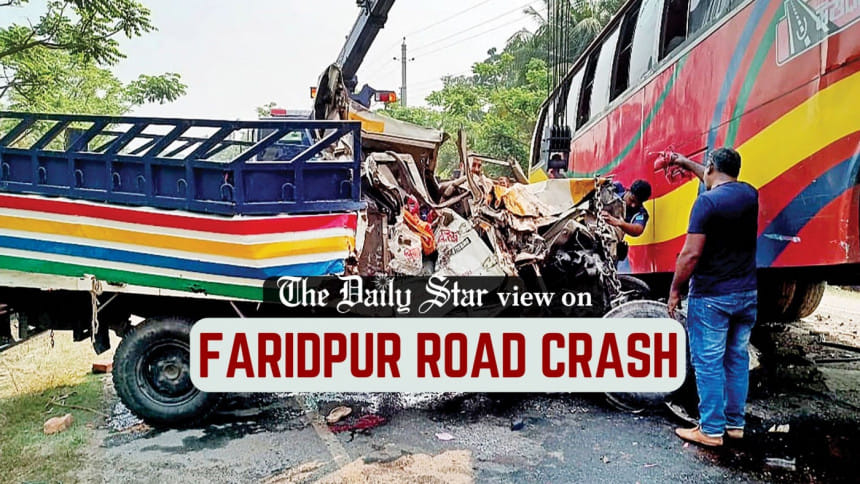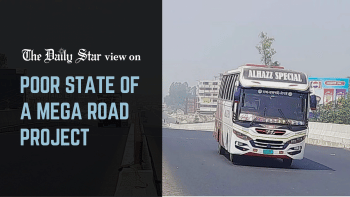Government's fatal apathy towards road safety

In yet another tragic road crash on April 16, at least 14 people died in Faridpur—an incident which would most likely not have occurred had the government prioritised basic road safety measures. The bus in question, as reported by this daily, did not have the necessary permits to run on that route or updated fitness certificates. On the other side of the collision, the pickup van, which was carrying all the individuals who died in the accident, wasn't authorised to carry passengers at all. What's most appalling is how common these violations of crucial road safety measures are in our country, and how apathetic the government remains to the endless loss of lives of its citizens on the road.
The government continues to cave to transport owners' pressures against banning old and high-risk vehicles, to withhold strict enforcement of road safety measures and laws, and against adopting effective laws to hold vehicle owners and operators accountable. Meanwhile, at least 1,477 people were killed and 1,920 were injured in 1,630 crashes between January and March this year. Why is it that the government refuses to adopt most of the fundamental road safety measures? Why is it still easier to bribe law enforcement personnel than to acquire licences and fitness clearance legally? Why is letting people die on roads, without any assurance of safe vehicles, more acceptable to the government than employing effective laws and drives to make transport authorities abide by road safety regulations?
According to a World Bank report in 2020, Bangladesh could halve its road crash fatalities if it invested an estimated extra $7.8 billion over the following decade. Unfortunately, those recommendations have not been implemented, with our roads becoming even deadlier each year. While the government is spending scores more on spectacular megaprojects, road safety remains sidelined.
This cannot be how the roads operate anymore. The case of Faridpur and other crashes over the recent months must be investigated thoroughly, and the real perpetrators—not just the drivers but also those who allowed these vehicles to be on the road without permits or operational fitness—must be put on trial, and a white sheet of the underlying reasons behind road accidents must be produced. The government must put the lives of the citizens of this country at the forefront, not the interest of any vested groups, to make the roads safer.


 For all latest news, follow The Daily Star's Google News channel.
For all latest news, follow The Daily Star's Google News channel. 







Comments